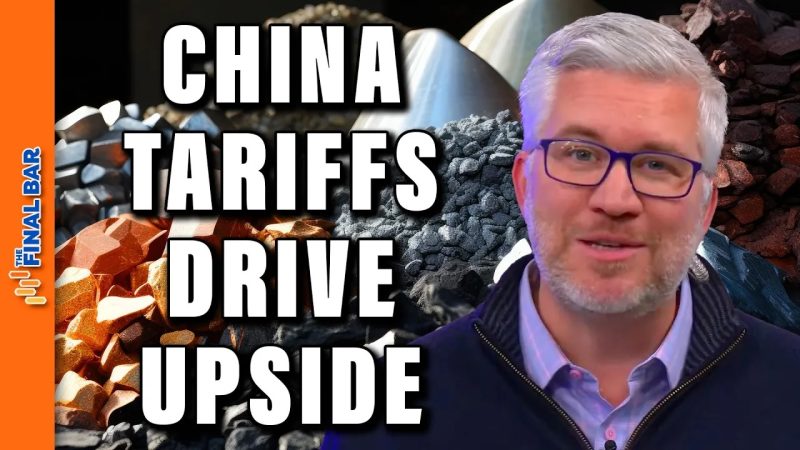The recent imposition of tariffs by the U.S. on China has caused a ripple effect in various industries, with rare earth minerals emerging as a crucial talking point. Rare earth minerals play a pivotal role in modern technologies, from smartphones to defense systems, making them a strategic commodity for many countries. This article will delve into the implications of the tariffs on rare earth minerals, exploring the various factors at play.
1. **Global Supply Chain Disruption:** China currently dominates the production of rare earth minerals, accounting for a significant portion of the world’s supply. The imposition of tariffs has raised concerns about a disruption in the global supply chain, as China may restrict exports or increase prices in response to the tariffs. This has led to fears of shortages and price hikes in industries reliant on rare earth minerals.
2. **Geopolitical Tensions:** Rare earth minerals have become intertwined with geopolitics, with countries vying for control over these valuable resources. The tariffs imposed by the U.S. on China have heightened geopolitical tensions, as other countries seek to diversify their rare earth mineral supply chains to reduce dependency on China. This shift in alliances and strategies could have far-reaching implications for international relations.
3. **Investment Opportunities:** The uncertainty surrounding the supply of rare earth minerals presents both challenges and opportunities for investors. As demand for these minerals continues to rise, there is a growing interest in exploring alternative sources or investing in companies involved in rare earth mineral production outside of China. This could lead to a reshaping of the market and create opportunities for new players to enter the industry.
4. **Technological Innovation:** The reliance on rare earth minerals in various technologies, especially in renewable energy and electric vehicles, underscores the importance of securing a stable supply chain. The tariffs on Chinese rare earth minerals may spur innovation in recycling and the development of alternative materials to reduce dependence on traditional sources. This could drive research and development in new technologies that are more sustainable and environmentally friendly.
5. **Environmental Concerns:** The extraction and processing of rare earth minerals are often associated with environmental degradation and pollution. The tariffs on Chinese rare earth minerals may prompt a reevaluation of mining practices and stricter environmental regulations in the industry. This could lead to a more sustainable approach to rare earth mineral production, benefiting both the environment and local communities.
In conclusion, the tariffs imposed on Chinese rare earth minerals have far-reaching implications for various industries and international relations. The disruption in the global supply chain presents challenges but also opportunities for investors and technological innovation. As countries seek to diversify their rare earth mineral supply chains, the industry may undergo significant changes that could shape the future of technology and sustainability.
